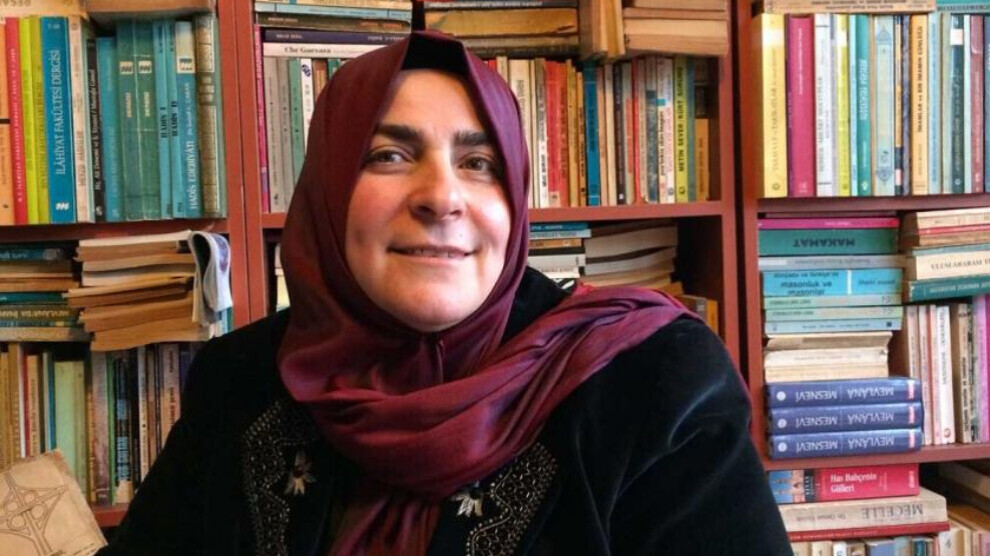Fatma Bostan Ünsal on the 10th Judicial Reform Package: “The mountain brought forth a mouse”
Fatma Bostan Ünsal criticized the new judicial package saying that "the mountain brought forth a mouse."
Fatma Bostan Ünsal criticized the new judicial package saying that "the mountain brought forth a mouse."

While the long-awaited 10th Judicial Reform Package, which has raised public expectations for reform, is expected to be brought to the General Assembly today, it appears that its content does not meet expectations and has caused significant disappointment in society.
It has been noted that, despite earlier statements by the government suggesting that the package would pave the way for the release of many detainees and improvements in the judicial system, such promising provisions are absent. Concerns have been raised that the package may in fact increase pressure on society.
Fatma Bostan Ünsal, one of the founding members of the Justice and Development Party (AKP), a political scientist, and a human rights advocate, commented on a last-minute change made by the government to the judicial package. She told ANF that the expected regulations were not made, saying that "the mountain brought forth a mouse."
Fatma Bostan Ünsal said that reform was needed regardless of the new process and added: "Apart from the requirements of a new peace process in Turkey, there was a dire need for reform due to the extreme overcrowding of prisons and the inequality faced by those benefiting from enforcement regulations."
According to the Civil Society in the Penal System Association (CISST), the total prison capacity in Turkey is 299,924, while the current prison population is 409,617. Moreover, since this excess is not evenly distributed, some wards are housing inmates at 2–3 times their intended capacity.
Additionally, the enforcement regulations during the COVID-19 pandemic, which unjustly allowed only criminal convicts to be released, were expected to be expanded to include political prisoners. Therefore, beyond any reform that might have come from the new process, even a minimal regulation addressing these points was expected.
The government resorted to a convenient method of demonization
Bostan Ünsal said that, even if not openly stated, the 'FETÖ' excuse was used for the absence of expected reforms. She argued that the government has created a new enemy: "Although not stated openly, there’s talk that the regulation did not come out as expected due to the 'FETÖ' excuse. In this period, marked by the erosion of the rule of law and an economic crisis, with declining public support for the government, the July 15 coup attempt, the birth of this regime, and thus 'FETÖ' are continuously kept in the spotlight as the group to be remembered and punished.
Through a highly successful public relations strategy, the 'FETÖ' label has become a broadly accepted term used by almost all sectors of society without much scrutiny. It legitimizes arbitrary and ambiguous punishments and serves as a very useful tool of demonization. There is always a need for a scapegoat. In the past, 'PKK' and 'HDP' were used easily. Since these are no longer viable, and 'CHP' hasn’t yet turned into such a figure of evil, 'FETÖ' appears to be the only remaining villain."
Groups may turn on each other
Ünsal warned that excluding certain social groups from the reform may increase division: "If not all social segments benefit from this regulation, it could lead to conflict among them. As you know, members of 'FETÖ' are imprisoned for acts like depositing money in Bank Asya or attending a conversation group, actions that are not even crimes. Now, as a result of years of indoctrination, if they remain imprisoned while 'terrorists are pardoned', they may direct their objections and anger toward other groups. It’s crucial that all sides act with principle to avoid division."
Discriminatory language must be abandoned
Although Ünsal acknowledged the criticism of the judicial package as valid, she said it would not lead to a major political rupture and emphasized the need to abandon discriminatory rhetoric: "I don’t think this package will cause a major rupture. Even if it has disappointed thousands waiting for release, a new regulation in September could eventually bring the expected results. Additionally, discussions are ongoing about changing or abolishing the Anti-Terror Law and redefining terrorism in relation to violence. Of course, none of these changes will happen automatically. They will require persistent, patient efforts from those seeking change, efforts that do not demonize others or rely on discrimination."